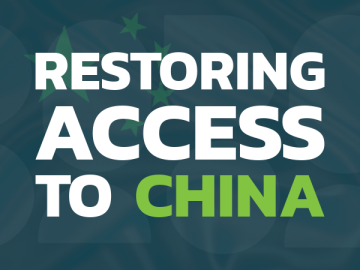

Over the past few years, I’ve seen some of the most influential “sustainable” brands get called out for a lack of accountability and exposed for their inability to back up their claims—a trend so familiar it has its own term: “greenwashing”.
Apr 22, 2022

Twenty-two years into the century and it’s clear one of the defining factors of the start of the millennium will be humanity’s shift to sustainability. Consumers are more concerned with their environmental footprint than ever before—and we’re barely a quarter of the way in.
In order to fully establish ourselves in the next phase, governments and industries alike are setting standards for what “sustainability” really means.
Over the past few years, I’ve seen some of the most influential “sustainable” brands get called out for a lack of accountability and exposed for their inability to back up their claims—a trend so familiar it has its own term: “greenwashing”. It just goes to show the critical need for industries to establish a baseline for these claims.
One of the challenges in establishing such criteria is that there are so many factors contributing to the final environmental impact of a product or company—or industry for that matter. Measuring impact can be overwhelming and costly. And with no standard in place for what makes a reliable claim, there’s little drive to invest the time and money.
At Pulse Canada, we are setting the standard for measuring the carbon footprint of the pulse industry. To date, we’ve conducted life cycle assessments on pea, lentil, faba and dry bean crops. And while this data only takes us as far as the life cycle on the field, it covers 13 environmental end-points and accounted for soils and climates across regions. Assessing a carbon footprint with an LCA ensures is the most relevant factors are accounted and adjusted for; pulse crops are a natural climate solution—and we can prove it.
We’re using this extensive data to work with companies who are conducting their own LCAs so they can make bold sustainability claims with data to back them up.
But the ball doesn’t stop rolling there. The next step for Pulse Canada and the industry is working with our processors to figure out what environmental endpoints need assessing in order to get an equally strong LCA report for pulse ingredients.
Our industry is skating to where the puck is going. Our goal: to create conditions for growers, processors, and exporters to monetize commitments being made to global environmental sustainability by being the first country to offer thorough and reliable data on pulses from farm to plate.
If you want to learn more about the sustainability of pulses, click the 'book a meeting' link to chat more.
Until next time,
Denis Tremorin
Director, Sustainability
Pulse Canada
Our bi-monthly newsletter provides growers with timely, quick reads on the latest industry news and Pulse Canada’s work around the world.
Pulse Canada is the national association of growers, traders and processors of Canadian pulses, also known as lentils, dry peas, beans and chickpeas. Pulses are an essential part of a healthy and sustainable diet. Pulses and pulse ingredients can help food manufacturers improve the nutritional and functional quality of food products.